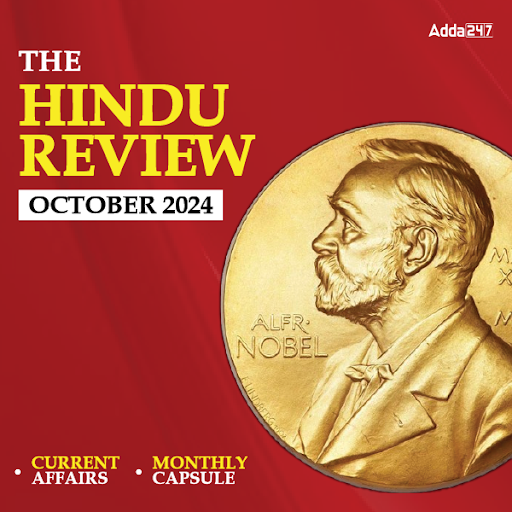Q1. Who will settle the grievances of customers of banks?
(a) Reserve Bank of India
(b) State Bank of India
(c) Local Courts
(d) Ombudsmen
(e) Governor of RBI
Q2. The main function of commercial bank can be segregated into——-
I. payment system.
II. financial intermediation.
III. financial services.
Select the correct answer using the codes given below
(a) All I, II and III
(b) Only I and III
(c) Only I and II
(d) Only II and III
(e) None of the above
Q3. Money laundering normally involved?
(a) placement of funds
(b) layering of funds
(c) integrating of fund
(d) All of the above
(e) None of the above
Q4. Which of the following is the Central Bank of the country?
(a) RBI
(b) SBI
(c) RRB
(d) NABARD
(e) SEBI
Q5. For filing and resolving customer complaints, the Banking Ombudsman?
(a) charges a fee of Rs 500
(b) does not charge any fee
(c) charges a fee of Rs 1500
(d) charges a fee of Rs 1000
(e) None of the above
Q6. Banking Ombudsman Scheme is applicable to the business of——-
(a) all scheduled commercial banks excluding RRBs
(b) all scheduled commercial banks including RRBs
(c) only public sector banks
(d) all banking companies
(e) all scheduled banks except private banks
Q7. The legal relationship between a bank and its customer is a kind of
I. debtor and creditor.
II. principal and agent.
III. pledgor and pledgee.
IV. mortgagor and mortgage.
Select the correct answer using the codes
given below:
(a) Only I and III
(b) Only I, III and IV
(c) All I, II, III and IV
(d) Only I and II
(e) Only I, II and III
Q8. Many times, we hear about the ‘Banking Ombudsman’. What is/are the major roles of same?
I. Banking Ombudsman is a quasi-judicial authority having powers to summon, the banks and the customers both in case of dispute.
II. The Banking Ombudsman are appointed by the President of India and are retired judges of the High or Supreme Courts.
III. The decisions/judgements given by the Banking Ombudsman cannot be taken to any court of justice as their decisions
are last in case of bank related problems disputes.
Select the correct answer using the codes given below
(a) Only I
(b) Only II
(c) Only III
(d) All of the above
(e) None of the above
Q9. Under what circumstances, can the bank close a partnership account?
(a) Death of partner
(b) Retirement of a partner
(c) Insolvency of a partner
(d) All of the above
(e) None of the above
Q10. SWIFT is a network for banks to exchange information. What is the expanded form?
(a) Safe window for international transactions
(b) Secured worldwide international transactions
(c) Society for worldwide interbank financial telecommunications
(d) All of the above
(e) None of the above
Q11. Who is a banking ombudsman?
(a) The chief vigilance officer of a bank
(b) The chairman of a bank
(c) An official in the Finance Ministry, Government of India
(d) An independent authority appointed by RBI to address customer complaints
(e) None of the above
Q12. Which one is true in respect of bank marketing?
(a) Bank marketing deal with providing services to satisfy customer’s financial needs and wants
(b) Bank marketing has to discover/ascertain/anticipate the financial needs of the corporates
(c) Bank marketing may be required to satisfy the corporates and institutions, other related needs and wants
(d) Bank marketing means competitive element, efficiency and effectiveness in the process
(e) None of the above
Q13. Which of the following is/are the rights of customer towards his banker?
(a) To receive a statement of his account from a banker
(b) To sue the bank for any lose and damages
(c) To sue the banker for not maintaining the secrecy of his account
(d) All of the above
(e) None of the above
Q14. In case, a depositor wishes to withdraw his fixed deposits prematurely, banks
(a) do not allow the same till maturity of the deposits
(b) charge a penalty for the same
(c) do not charge any penalty and allow the same
(d) All of the above
(e) None of the above
Q15. Whenever some people wish to enter into the business world, it is a must for them to approach a bank. What services do banks provide them in this regard?
I. Banks act as payment agents by operating current accounts, paying cheques and receiving payments for them.
II. Maintaining account books for them for their day-to-day activities, so that they are not required to appoint account/
finance personnel on a regular basis.
III. Lending money by way of overdraft, instalment loan, credit or advance for business activities.
Select the correct answer using the codes given below:
(a) Only I
(b) Only II
(c) Only III
(d) Only I and III
(e) All of the above



 The Hindu Review October 2022: Download ...
The Hindu Review October 2022: Download ...
 CAIIB ABM Exam Analysis 2024, 24 Novembe...
CAIIB ABM Exam Analysis 2024, 24 Novembe...
 Important Essay Topics for IBPS PO Mains
Important Essay Topics for IBPS PO Mains




